#VanLife Survival – What I’ve Learned While Living On The Road
Tips and Tricks for Successful #VanLife Living, from important preparation, through to everyday tasks and the right approach to your lifestyle.
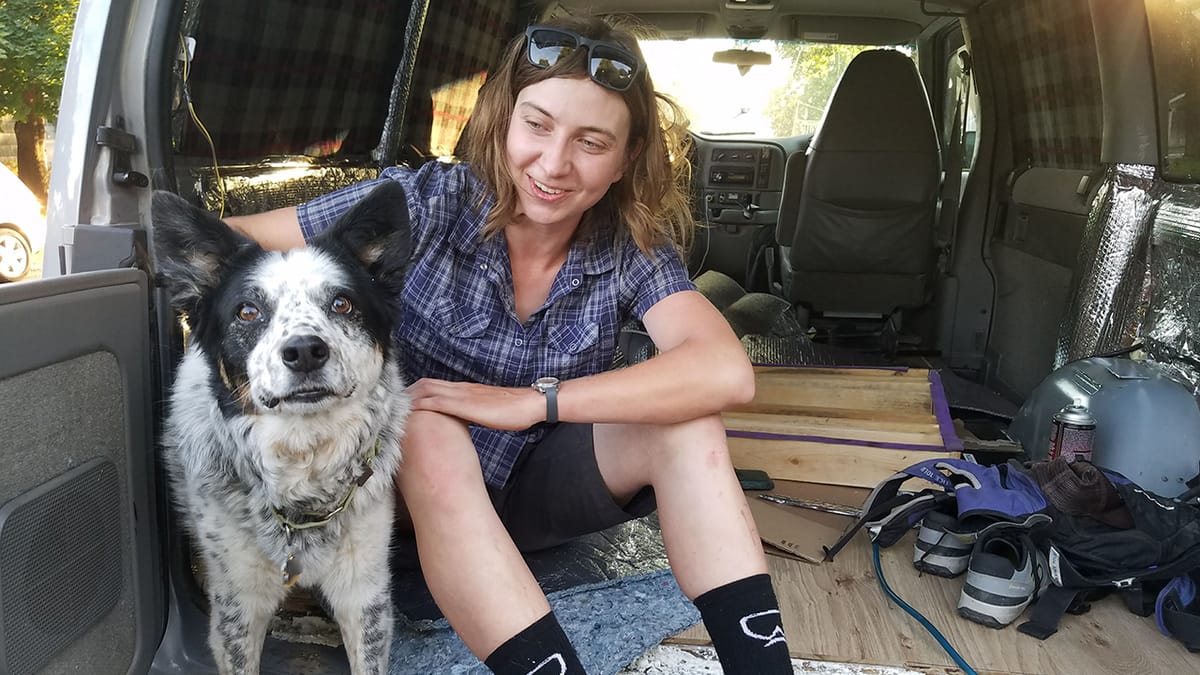
My name is Alicia Leggett, and I live in a GMC Safari named Bennie. I spend my time traveling to bike races, exploring the American West, finding mountains to climb and planning my next adventures. Living in my van has simplified much of my life, drastically cutting my expenses to let me travel instead of pay rent. I feel lucky. But living on the road presents its own challenges, and I’ve had to learn plenty through trial and error. I’ve found that the keys to successful van living are all about planning ahead, being realistic about what I need, and fostering a set of habits that helps me manage everyday life. For anyone curious about living in a van (or another vehicle), I’ve distilled my life on the road into a set of guidelines that I hope will help other travelers.
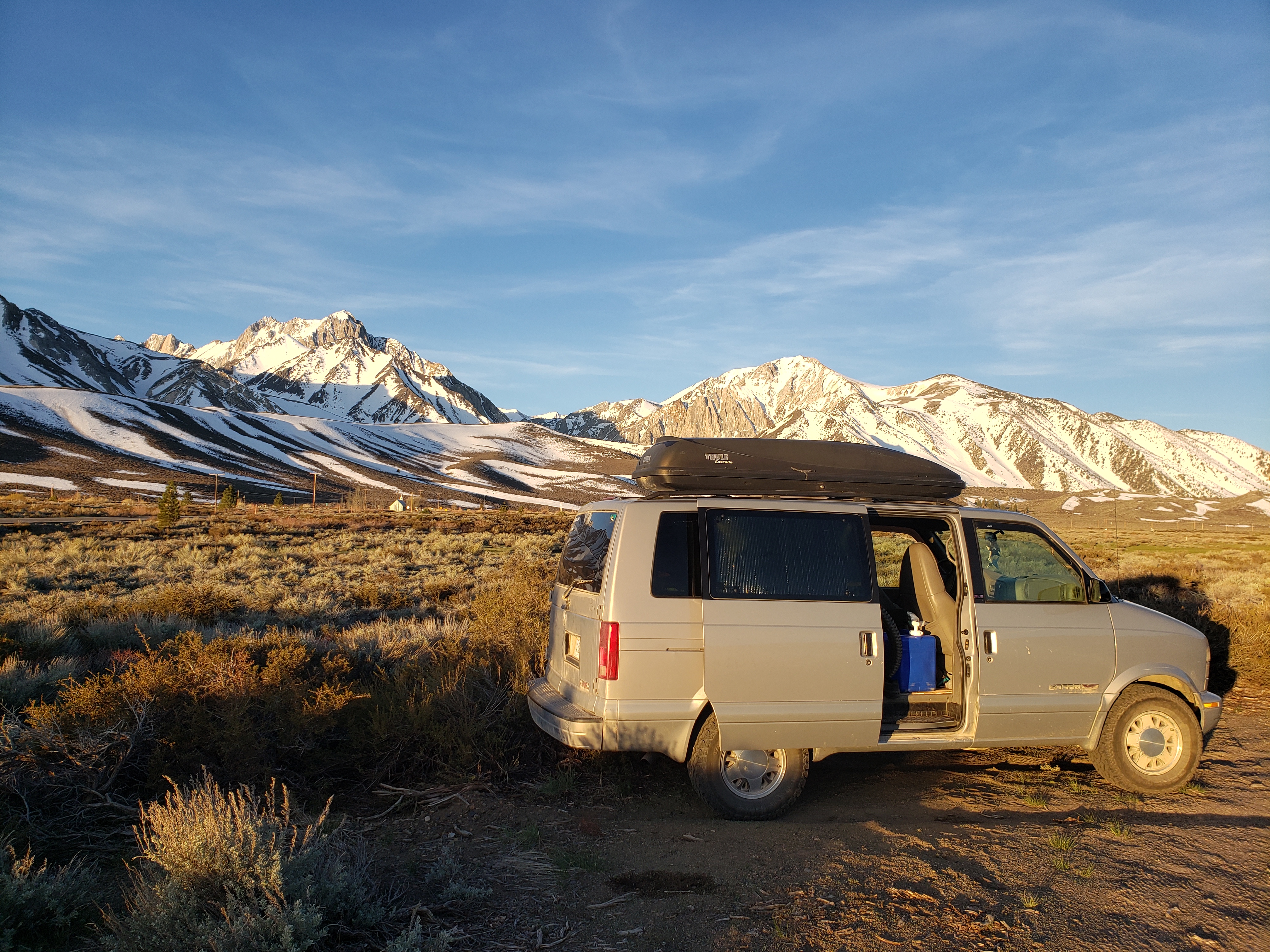
Setting up for success:
- The first rule of living on the road: Stay organized. Living in a messy van is indescribably more stressful than living in a neat one. Find the small ways to keep your living space neat, and consistently make the effort. Trust me on this one.
- Design your van layout according to your needs. I have a basic bed platform behind my driver’s seat with storage bins underneath the bed. It’s simple but effective. I also didn’t build a permanent kitchen spot, and instead use my stove wherever I want. If it’s cold, I cook inside. Otherwise, I set up outside. Some people, on the other hand, incorporate permanent kitchens into their van builds. Design your van around your personal needs and preferences.

- Minimize what you own. I’ve used up precious van space hauling around clothes, shoes, books and cooking items that I never use. Identify the things you need and let go of the rest. I regularly sort through and sell or donate things I don’t need. Summer clothes that I haven’t touched all summer? Gone. Winter clothes that I didn’t wear last winter? Gone. That dress that I try on and then abandon every time I need to go to a fancy event? I’m never actually going to like it. Keeping only the things that improve your life means that you appreciate everything you have.
- If you have things you don’t want to get rid of but don’t need to bring with you all the time, consider renting a storage unit. I have a storage unit in Missoula, MT, for any seasonal clothes and sports gear. If I’m not planning to ski on a summer trip, I probably don’t need to bring my ski stuff. Ditto for mountain biking gear on a ski trip. While I don’t think a storage unit is a must-have, it’s definitely useful for those of us who live seasonally. When dealing with your storage unit, follow Rule #1: Stay organized.
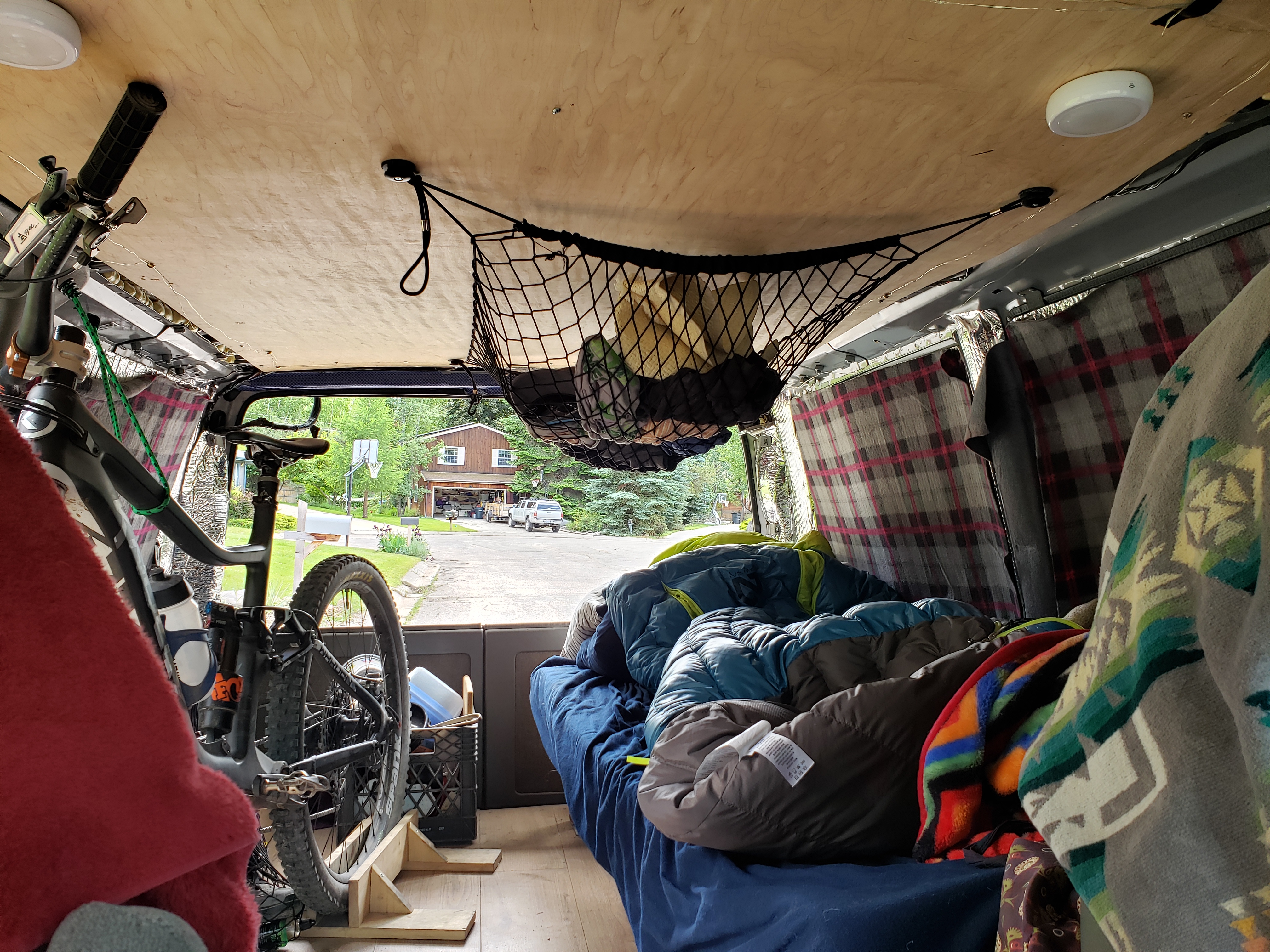
- Download apps to find camping spots. Find out which apps work in your region and download several of them. I’ve found that different apps tend to have different information, so I check several resources when I arrive in a new place and look for somewhere to sleep. A Wal-Mart parking lot will work in a pinch, but if I put in a bit more effort, I can usually find somewhere more scenic (and still free).
- Maintain your vehicle, and do everything you can to make sure it is ready to take on a road trip. Fix small problems before they become big problems. Having car troubles is no fun, and it’s worse when you’re nowhere near your destination.

- Plan for the weather. Traveling somewhere cold? Be sure you have the right bedding, clothes and heater. I have two sleeping bags, a giant blanket, lots of winter clothes and a small propane heater. The downside of my propane heater is that it produces condensation, but it’s simple and cost-effective. If I had more space, I would install a small wood stove. Research heating options and decide what works best for your living space and budget.
Everyday tasks:
- Friends’ houses can be priceless. One of my Missoula friends gave me a house key and lets me use his house for whatever I need, anytime I’m in town, and it’s a great chance to reorganize the van, take a mental reset and have consistent access to a shower. In return, I try to make good food, deep clean or pay utility bills – especially if I’m there for an extended period of time.
- Similarly, when I’m at bike races, I almost always have friends staying in nearby hotels or houses. I’m not above asking for a shower, and often cook for everyone while I’m there. Figure out what you can do to contribute to the household, and be willing to accept help. Find ways to pay it forward in the future.
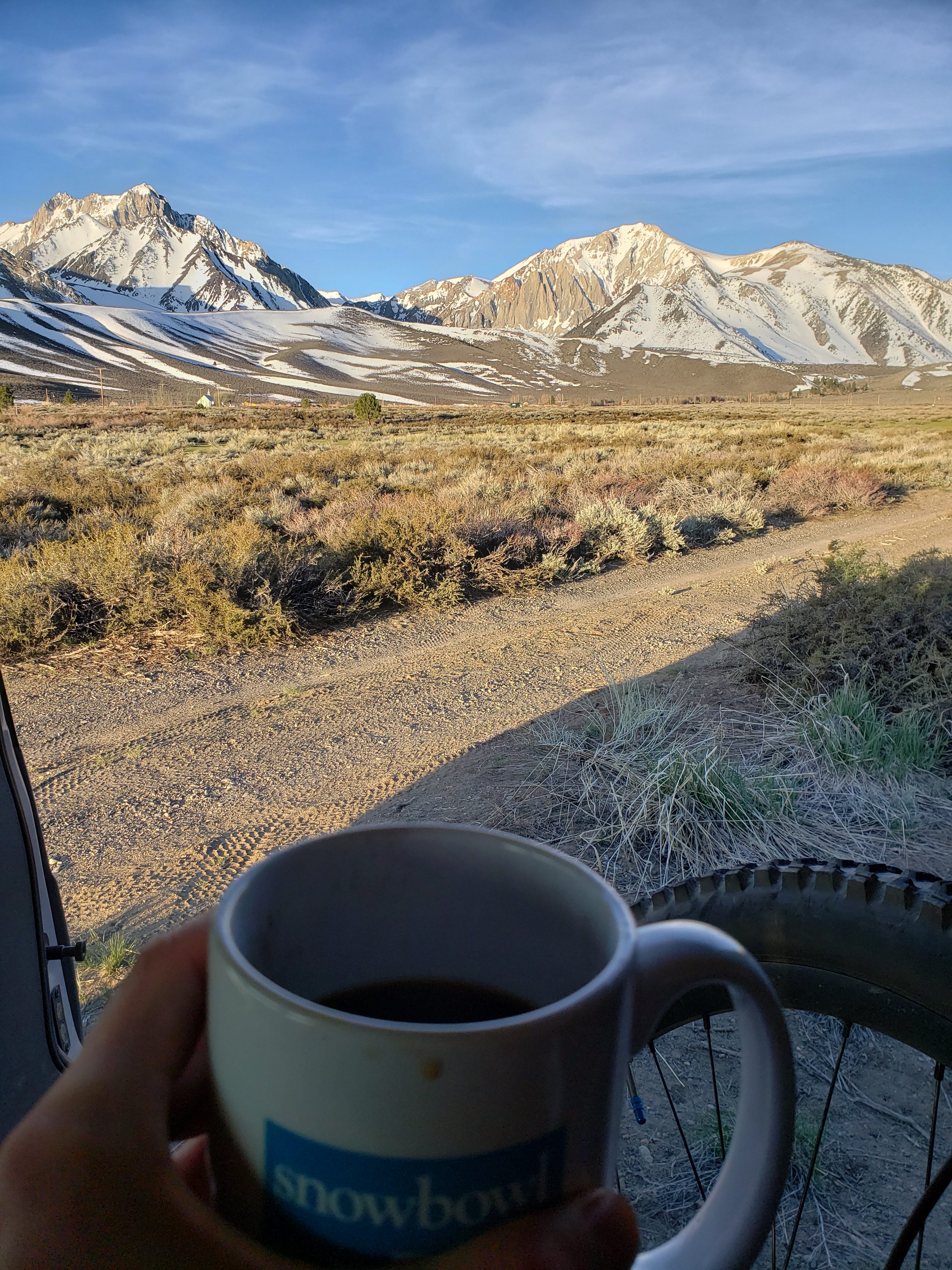
- Plan meals ahead of time and make sure your cooking system is dialed. I have a three-burner propane stove, a Jetboil, two pots that nest together and have lids that double as pans, a cutting board, one cooking knife, several pocketknives and basic dishwashing supplies. If you are happy with your cooking setup, it’ll eliminate a lot of hassle and you’ll be less likely to stop to buy quick food while on the road. I have a small cooler and limited food storage space, so I plan meals based on what I can store at any given time. Some of my go-to meals include scrambled eggs with vegetables, oatmeal, tacos, and stir fry with whatever I have.
- Anticipate your water needs. You’ll need water for drinking, cooking, cleaning and “showering.” Many parks and campgrounds have drinking water spigots. I’ve also had success filling my seven-gallon water jug at friends’ houses and gas stations. I always try to keep at least a day’s supply of water, though, because it can sometimes be tricky to find a place to fill up.
- Don’t underestimate a gym membership. Shower at the gym. Use a workout and a hot shower to get warm before going to bed in the winter, or to warm up early in the morning. While traveling, research which gyms have free trial passes – usually one day, but sometimes three, five or seven days – that you can use while passing through.
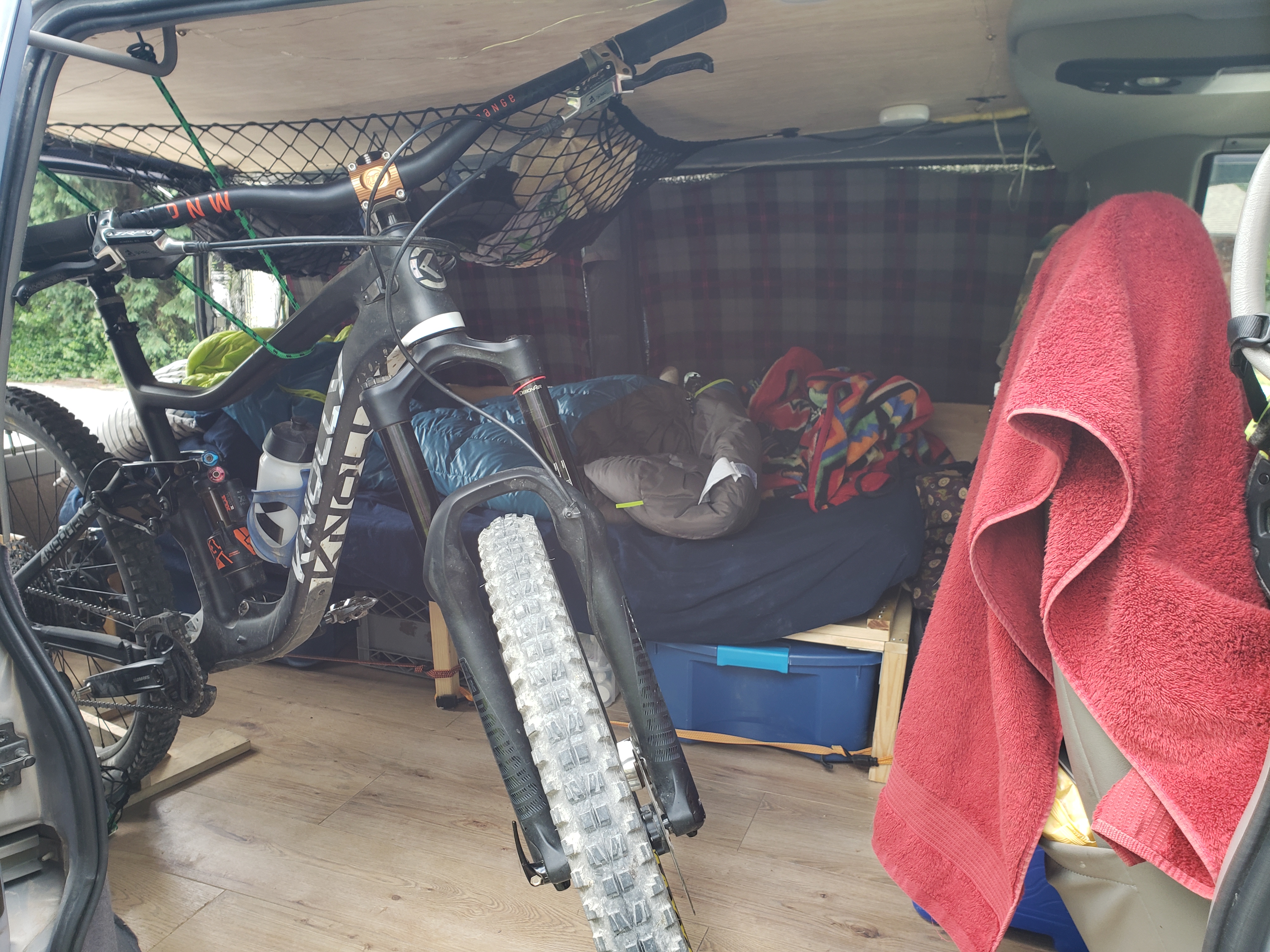
- Be willing to be a little ridiculous. Recently, while traveling through British Columbia, I found a shower on the side of a building in a park for people who swam in a nearby lake. I felt absurd going to the park in my swimsuit to take a very cold and very public shower, but I could laugh at myself, and hey, I’ll take what I can get.
- Minimize moisture. Try to avoid bringing wet clothes, towels and gear into your living space, as it will be surprisingly hard to dry everything out. Close the windows and doors when it’s raining or snowing, and do your best not to track in mud and snow.
- Keep a small broom in your van, along with paper towels and wet wipes.
Lifestyle:
- Adjust your perspective. If you think of your vehicle as your entire house, it will start to feel small very quickly. My van is my bedroom and my garage. It can be my kitchen when the weather is cold. My bathroom is elsewhere. My living room can be a camp chair set up outside. Your home is as big as you make it.
- Read books, but don’t let too many books weigh you down or use up precious space. Go to libraries or trade books with your friends. Download audiobooks for long drives, and start listening to podcasts if you don’t already.

- Understand that living on the road doesn’t look much like #vanlife on Instagram. It’s messier and less scenic, and it does take some grit and creativity to make it work.
- Assess and re-assess whether your van setup works for you. As you travel, you’ll realize you don’t use everything you thought you needed, and you’ll find ways to make improvements over time, even if it means some rebuilding and reorganizing. As long as you stay flexible and open-minded, it will be a rewarding process.
Once you have the day-to-day figured out, you can focus on the more important pieces like planning outdoor adventures, seeing new places and meeting people with whom you’d never otherwise connect. Between adventures, I’ve found that time on the road is great for introspection and reflection. Long hours alone have given me the time and space I’ve needed to think through just about every piece of my life, and finding landscapes that make me feel small puts all my worries into perspective.
If the “freedom of the open road” concept has become cliché, it’s for good reason. Van living has given me a brand of independence that I haven’t found elsewhere, and I know I’m not alone in that feeling. Why else would living in a tiny, lonely space become so trendy? Despite the cold nights and raised eyebrows, the adventure is worth it.
To anyone out there who wants to take the leap: Good luck. It may sometimes feel grim, but even then, it will be wonderful.


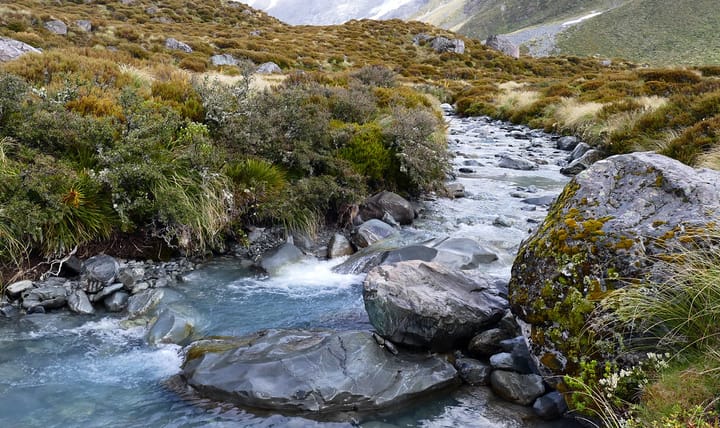

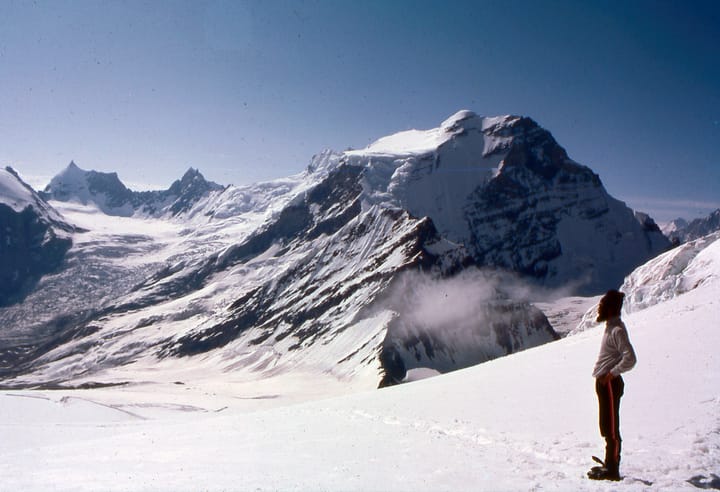
Comments ()